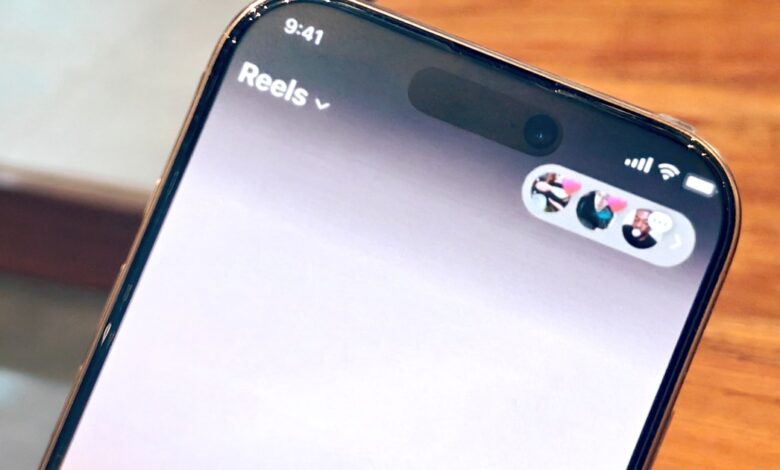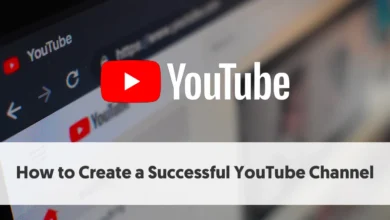Instagram will broadcast the Reels you like to everyone. I fear it.

TikTok is currently looking at an existential crisis. If the presidential miracle does not occur and Social media site shuts down in US On January 19, a social media exodus is imminent.
I’ve seen that happen in India, when a platform with 200 million users quickly disappeared. The majority did not have the opportunity to migrate. Some never recovered. Instagram happily took advantage of “TikTok migrants” and grew.
Meta’s proprietary platform is not without its flaws. Targeted harassment and A drug problem that affects adolescents. There are only two of them. The business is now introducing a feature that will devalue the “safe haven” it once was and unleash a torrent of harassment.
Adam Mosseri, CEO of Instagram announced a new section where one can see videos that their friends interacted with online. It will be a dedicated tab in the Reels feed, populated by clips that friends have liked or commented on.
The reasoning? The company wants Instagram to become a place “where you explore your interests with your friends.” It’s not that Instagram doesn’t already offer similar features.
Obviously you can share Reels in groups, whether they are friends, family or simply co-workers. Or you can create special lists where you can add content directly for both people to see without going through the whole direct messaging process.
Instagram already shows you content that your connections have liked, and also in a quite visible way. If one of my friends (or even an account that isn’t a mutual follower) liked a funny video, it can now appear randomly in my feed.
These videos clearly show the profile image of the account that gave him a red heart. I can simply tap that profile icon with a heart and open their full social page. It’s as if Instagram wants me to see content that my friends consider worthy of interest.

I may not necessarily like the dark comedy meme my cousin liked, but that’s just Instagram’s way of imposing its algorithmic dominance over my own preferences.
I don’t see all the content that all my friends like or the accounts I follow. I just stumble upon it randomly. In the future, you will have a dedicated space where you will find just that. All video interaction history.
“We want Instagram to not only be a place where you consume entertaining content, but also a place where you connect through that content with friends,” explains the head of Instagram.
I don’t want that. Nearly half a dozen people I spoke to today, from different age groups, were uncomfortable with the premise of exposing their likes to their entire list of friends and followers.
The tastes and price of intimacy
Likes are, well, more than likes. They are a way of telling the algorithm that you want more of that content. You don’t necessarily want to broadcast that information to your entire circle.

Likes are a way to express support for a creator. They are a means of encouragement to lift the spirits of your friends and family. They are a digital conduit to make people feel seen.
They are an expression of bravery, especially when you find a specialized digital corner where you can express your vulnerability. Discover a sense of community, without fear of being embarrassed or ridiculed.
Anonymity, or whatever it is on Instagram, encourages online courage. This is what a research article published in the Computers in human behavior diary says:
“When people feel anonymous within an online community, they may experience greater social identification with the community and a desire to engage in behaviors that are consistent with the community’s norms and moral standards, even if doing so potentially comes at a cost.” staff. .”
Other research published in the Conference on Human Factors in Computer Systems The magazine addresses the issue of privacy and anonymity on social networks. “People reveal themselves less as the intimacy of the content increases,” says.
Instagram once had a similar feature called the “Following” tab where you could see your friends’ engagement activities, all cataloged in a unified dashboard. The company removed that feature in 2019. Why bring it back now, Instagram?
Safe haven, no more
For anyone who finds a safe haven in a dark corner of the Internet, anonymity is the secret weapon that allows you to express your true self. Ask any queer or trans person in your circle and you’ll understand.
The same applies to anyone who has faced prejudice or harassment for speaking out.
As a person who has been harassed more times than I can remember because of my religious identity and did not fight back, I express my courage through liking the brave few who challenge that narrative on social media.

I don’t want to make that support public to my entire group. That’s a part of my identity that I don’t feel comfortable making public. In the context of social media and public participation, we are faced with the sum total of our identity, both on the public and intimate sides.
“Identity is therefore a social identity, inextricably intertwined and therefore shaped through our engagements with others,” writes Hallvard Fossheim, a professor at the University of Bergen, in his book, Internet research ethics.
The fear of exposing what I like, especially content tailored to topics that are intimate to me, is what prevents me from liking it on Instagram. I prefer to save it, as bookmarks. I share that fear with many people.
in this fantastic paper Titled “Being watched and feeling judged on social media,” Rosalind Gill, Professor of Social and Cultural Analysis at City, University of London, makes the case for online anonymity and digital privacy, based on interviews conducted over the course of a year. .
The commitment and emotional consequences are delicately intertwined. I recently informed a colleague of mine that his likes on erotica content are appearing in my feed, with a clear icon of his image on the screen.
I was immensely embarrassed. She didn’t deserve to go through that. I simply pointed it out personally, to avoid any unwanted scrutiny or ridicule towards her, behind her back.
Instagram’s new feature removes the safety of anonymous self-expression. I hope the company offers a way to opt out. I don’t want anyone to stop liking what they find endearing. I certainly don’t wish that for myself.






